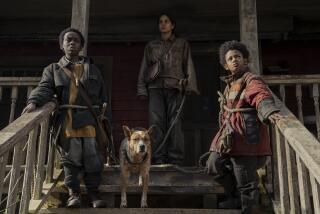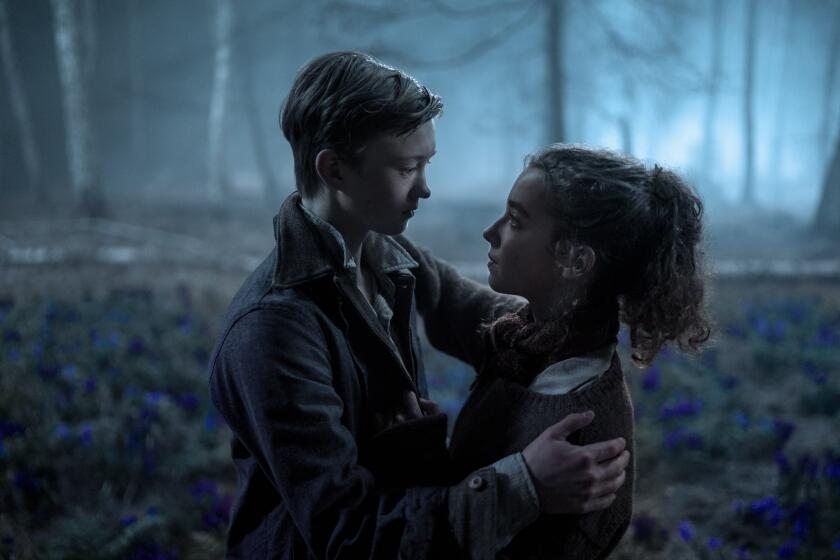Review: A man named Nanook lives in a yurt and goes his own way in ‘Ága’
A small gem of focused filmmaking, “Ága” tells a minimal story so beautifully it holds us completely.
Directed with great skill by Bulgaria’s Milko Lazarov and stunningly photographed by Kaloyan Bozhilov, “Ága” plays for all we can see like a classic ethnographic documentary set in the Siberian far north of Russia’s Sakha republic.
But though the characters speak the local Yakut language, what this film turns out to be is a carefully constructed parable that draws us into a made-up life as if it was the real thing.
What is real are the stunning vistas of winter in this dauntingly frigid part of the world, a frozen vastness that is mesmerizing and poetic in its almost complete emptiness.
Living in this environment, as they have all their lives, are gray-haired Nanook (Mikhail Aprosimov) and Sedna (Feodosia Ivanova), as close and companionable as two halves of a couple can be.
If you recognize the name Nanook, you know that one of the inspirations for the script by director Lazarov and Simeon Ventsislavov is Robert Flaherty’s landmark 1922 ethnographic documentary “Nanook of the North.”
Like that film, Lazarov follows his fur-clad Nanook through the tasks of daily life, watching as he sets and checks traps, breaks through the ice to fish, and, unlike radio hero Sgt. Preston of the Yukon, gets from place to place on a sled pulled by but a single hard-working dog.
Nanook knows that the modern world exists; in fact, one of the film’s most vivid shots has him flat on his back in the snow watching jet airplane vapor trails in the sky.
Rather, Nanook simply prefers his ways of doing things, hard as it may be, even though he is aware — witness the fact that the reindeer that are key to his existence have stopped returning — that things are changing irrevocably.
Inside their isolated yurt, Nanook and his wife, Sedna, collaborate closely on their subsistence life, as she cuts his hair with a knife, helps him pull off soaking wet boots and chides him for the forgetfulness that comes with increased age.
The only visitor these two get is Chena (Sergei Egorov), presumably a neighbor of some sort but one distant enough to have to arrive via snowmobile.
Chena brings firewood as well as kerosene for the yurt’s lamps, and he also has with him a small portable radio which inexplicably seems to play nothing but classical music.
The visitor also brings news of Ága, Nanook and Sedna’s estranged daughter, who left the family under circumstances that are never revealed and now lives and works in one of Sakha’s cities.
This is especially hard on the couple because one of the themes of “Ága” is the importance of family and community, and sadness at the way those ties are breaking down. As Nanook says at one point, “Legs are like family: One can’t do without the other.”
Though “Ága’s” story eventually takes some dramatic turns, what makes the biggest impact are not the plot points but the evocative visualization of a way of life that, filmmaker Lazarov admits, is more true to the spirit of the Yakut than any specific activities.
No matter what its origin, the unforgettable thing about “Ága” is the way its beautifully shot and impeccably composed images hold us, both the epic outdoor shots and the warm intimate moments inside. Quiet and unobtrusive, this is a film that knows how to make an impression, and it does.
'Ága'
In Yakut with English subtitles
Not rated
Running time: 1 hour, 36 minutes
Playing: Starts Sept. 27, Laemmle Royal, West Los Angeles
More to Read
Only good movies
Get the Indie Focus newsletter, Mark Olsen's weekly guide to the world of cinema.
You may occasionally receive promotional content from the Los Angeles Times.











